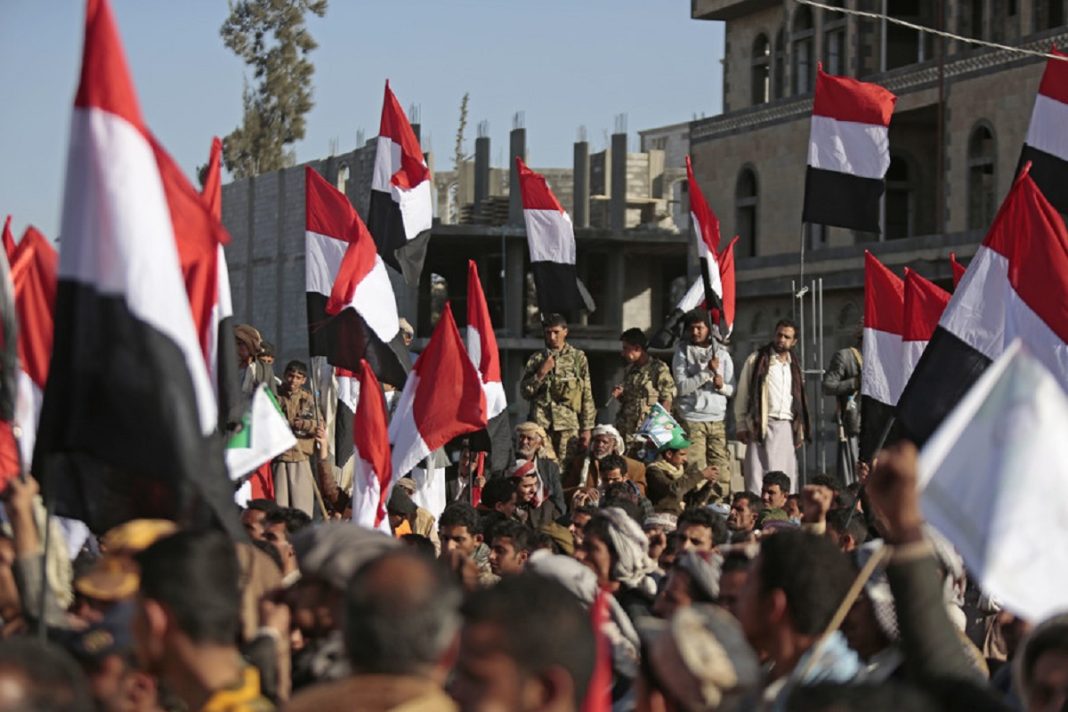Citing informed sources, Al Mayadeen TV network reported on Friday that Saudi officials had recently held a closed-door meeting with the chairman and members of the council, which was established last April after the resignation of ex-president Abd Rabbuh Mansur Hadi, to inform them about the peace plan.
Saudi Arabia’s Defense Minister Prince Khalid bin Salman briefed the council on Riyadh’s solution to end the crisis in Yemen, sources said, adding that the Saudis’ vision is to renew the existing UN-brokered truce for a year in an understanding with the Sana’a government.
Riyadh will pledge to pay the salaries of public servants, open Hodeidah port, and help settle the currency problems of Yemen in exchange for Sana’a’s acceptance of the truce, according to the report.
The renewal of the truce will be bound to an official announcement by Riyadh about the end of the war and the end of Saudi interference in Yemen’s affairs, sources added.
According to the report, Yemeni talks with the supervision of the United Nations and the support of Riyadh will start following the end of the war and will aim to clinch an agreement on a two-year-long transitional period.
The sources stressed that although Riyadh is still studying and discussing the plan, its decision is “almost final.”
On the other side of the ledger, and reacting to the reports, the spokesman for Yemen’s Ansarullah resistance movement stated they will continue efforts to end the aggression and establish peace.
“We pursue our efforts through negotiations to end the aggression and lift the siege, and we hope that the efforts will be crowned with a peace agreement,” Al Mayadeen quoted Mohammed Abdul Salam, who is also head of the Sana’a negotiating delegation, as saying.
Meanwhile, Asharq Al-Awsat newspaper reported that the new peace plan is set to take effect in three phases. Citing a Yemeni source, the Saudi-owned media outlet reported that the first phase of the peace deal would include a nationwide ceasefire, the reopening of all land, air, and sea routes, the merger of the central banks, and comprehensive prisoner exchanges.
The parties would then hold direct negotiations to establish how the Yemenis envision a state, followed by a transitional period.
The source expected a ceasefire to be declared in the coming days, for the truce to be consolidated and for fighting to stop at battlefronts. Other arrangements will need weeks to be implemented.
Saudi Arabia is widely blamed for the current humanitarian catastrophe in Yemen, where about 80 percent of its 30 million population are in need of some form of aid for survival.
Hadi resigned from the presidency in late 2014 and later fled to Riyadh amid a political conflict with the popular Houthi Ansarullah movement.
To reinstall Hadi, Saudi Arabia launched the bloody war against Yemen in March 2015 in collaboration with a number of its allies and with arms and logistics support from the US and several Western states.
The objective was also to crush the Ansarullah movement, which has since been running state affairs in the absence of an effective government in Yemen.
The war has stopped well shy of all of its goals, despite killing tens of thousands of Yemenis and turning the entire country into the scene of the world’s worst humanitarian crisis.
The war also displaced millions of people, rendering them homeless, while destroying the country’s infrastructure and spawning the contemporary age’s worst humanitarian catastrophe.
The warring sides agreed on a UN-mediated ceasefire last April but it broke down after six months. Nevertheless, tensions have eased and casualties have decreased as important elements of the truce still remain in place.
Meantime, reports suggest that a Saudi-Omani delegation is set to visit Yemen’s capital Sana’a next week to discuss a permanent ceasefire deal with Houthi officials.
If an agreement is reached, Yemen’s warring parties could announce an agreement before Islam’s Eid holiday starting April 20, two sources involved in the talks said, according to Reuters.
The discussions are focused on a full reopening of Yemen’s ports and airports, payment of wages for public servants, a rebuilding process and a political transition, they added.
The latest developments come as observers believe the recent rapprochement between Iran and Saudi Arabia could help enhance stability in the region and, in part, facilitate efforts to reach sustainable peace in Yemen.
Tehran and Riyadh agreed to restore diplomatic ties on March 10 after intensive talks hosted by China. Top diplomats of the two countries also held a landmark meeting on Thursday in Beijing, stressing on efforts to enhance mutual trust and help boost regional security.
